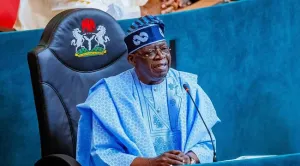DStv Plans Sports-Only Package to Counter Subscriber Losses

MultiChoice, the parent company of DStv, Africa’s leading pay-TV provider, is set to launch a sports-only subscription package in response to a significant decline in its subscriber base. The company has faced mounting challenges, with reports indicating a loss of between 1.2 and 1.4 million subscribers across its African markets, particularly in Nigeria, and a headline loss of approximately R800 million ($45 million) in recent financial periods. The proposed sports-only package aims to address customer demands for more flexible and affordable options while countering competition from streaming services and economic pressures impacting consumer spending.
The sports-only package would allow subscribers to access DStv’s popular SuperSport channels, which broadcast a wide range of live sports, including football leagues like the English Premier League, UEFA Champions League, and local competitions, without requiring a subscription to the broader bouquet of entertainment channels. This unbundling strategy is a significant shift for MultiChoice, which has traditionally offered tiered packages combining sports, movies, and general entertainment. The move reflects growing consumer frustration with paying for unwanted channels and a desire for tailored viewing options.
The decision comes amid a challenging period for MultiChoice. Economic factors such as inflation, currency depreciation in key markets like Nigeria, and rising living costs have squeezed household budgets, leading many subscribers to cancel or downgrade their packages. Additionally, the rise of global streaming platforms like Netflix, Amazon Prime Video, and YouTube, as well as local competitors offering cheaper alternatives, has intensified competition. Posts on X have highlighted customer dissatisfaction with DStv’s pricing and perceived lack of value, with some users advocating for a sports-only option for years.
MultiChoice’s financial struggles have been particularly pronounced in Nigeria, its largest market, where subscriber numbers have plummeted due to economic headwinds and unreliable power supply, which limits access to television services. The company’s recent annual results underscored these challenges, with a reported decline in active subscribers and a significant hit to profitability. The R800 million loss has prompted MultiChoice to rethink its business model to retain customers and attract new ones.
The sports-only package is still in the planning stages, with MultiChoice aiming to finalize its decision by March 2026. Industry analysts suggest the package could be priced competitively to appeal to sports enthusiasts, particularly younger viewers who prioritize live sports over traditional TV content. However, challenges remain, including securing broadcasting rights for premium sports content and ensuring the package is profitable without cannibalizing existing subscriber tiers.
The initiative aligns with global trends in the pay-TV industry, where providers are increasingly offering à la carte or genre-specific packages to meet evolving consumer preferences. For instance, streaming services like DAZN have gained traction by focusing exclusively on sports, offering flexible subscriptions that resonate with cost-conscious viewers. MultiChoice’s move could position DStv to reclaim market share, particularly among sports fans who form a core part of its audience.
On X, reactions to the news have been mixed. Some users expressed excitement about the prospect of a standalone SuperSport package, with one post stating, “Finally, DStv is listening! A sports-only package would be a game-changer for football fans.” Others remain skeptical, citing concerns about pricing and whether the package will include all premium sports content, such as Champions League matches. “If it’s not affordable or they lock key games behind higher tiers, it’s pointless,” one user commented.
MultiChoice has not yet released details on the pricing or channel lineup for the sports-only package, but the company has emphasized its commitment to delivering value to customers. In a statement, MultiChoice noted, “We are exploring innovative ways to meet the needs of our diverse audience, including options that prioritize flexibility and choice.” The company is also investing in its streaming platform, Showmax, to compete with global players, though Showmax’s sports offerings remain limited compared to DStv’s SuperSport portfolio.
As MultiChoice navigates this pivotal moment, the success of the sports-only package will depend on its ability to balance affordability with access to high-demand content. With a decision expected by March 2026, all eyes will be on DStv to see if this bold strategy can reverse its subscriber decline and restore its dominance in Africa’s pay-TV market.






